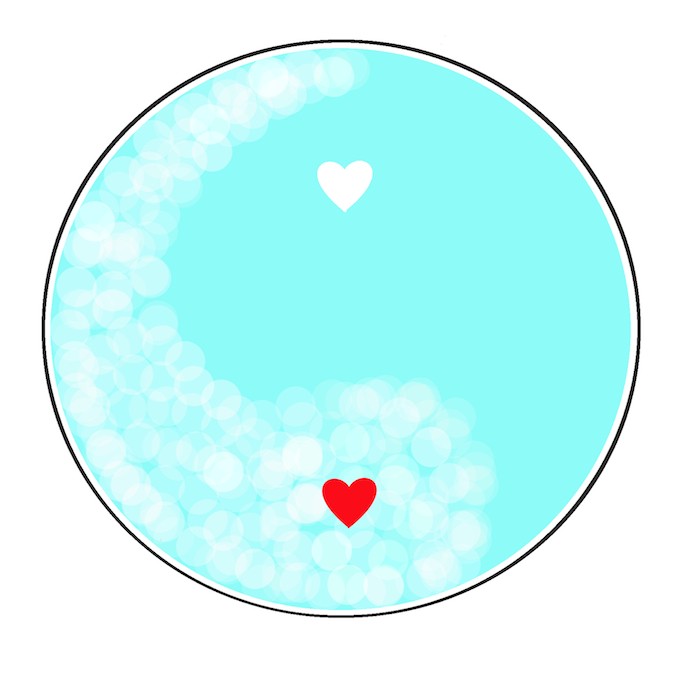Our perceptions of an experience get in the way.
We are drawn to things we perceive as good and avoid things we see as bad. In reality things just exist. They are not good or bad until we attach labels to them. These labels are our perceptions—the very foundations of our emotional patterns.
The Buddha realized that nothing stayed the same and everything is in constant state of change. It is attachment that causes suffering. Kabbalah encourages one to stop thinking of life as an upward battle. Every day is an opportunity for a fresh start, without preconceived rules, a chance to build the foundation of living the life we want.
Finding balanced gratitude is about looking at all of life’s occurrences as opportunities to grow. It is a chance to look within ourselves to gain insight and self awareness—to become clear on what it is we really love to do. Without thinking about the end result, with an open mind, and without fear of judgement.
That is not to say that we will be free of challenges, because challenge is a part of life. But when we are open to receive challenges as a way of developing new skills, knowledge and techniques, we see how they help us grow. Instead of perceiving a challenge as a bad thing we are to avoid, we accept challenges and do not become stuck in negative emotional cycles.
We notice our thoughts and see that we perceive some as good and others as bad. We recognize when we become attached to good thoughts we experience an emotional peak and that when we become stuck in our bad thoughts we experience an emotional low. The ability to identify our attachments enables us to move back to our center.
This way when we are going through a challenging period, we are able to see it as a temporary state. We work through it and we see the power to change, that lies within each one of us. The continual ability to change, is what keeps us in a state of balanced gratitude.
As Buddha says, “All that we are is the result of what we have thought. The mind is everything. What we think we become.”
It is powerful to know that within each one of us lives the power to change. And we can learn a technique that enables us to balance our uneven perceptions to achieve emotional clarity. I practice a technique known as equilibration every day.
By asking myself a series of specific questions, I am able to hone in on the emotion that is driving my imbalanced perception surrounding an event. Once I identify the emotion using a single word to describe its trait, I am able to see how this trait serves me in life by listing all the experiences I would have lost out on if I did not possess the specific trait. The process continues to go back and forth balancing both the positive and negative perceptions surrounding this trait unit I am no longer attach an emotion to it.
Equilibration can help us to transcend small disappointments and big ones alike. It could be the smallest thing like feeling upset because it rains on the day we planned to go to an outdoor event or something as upsetting as learning that a close friend lied. Equilibration also helps you plan for things that might not turn out as you had planned when entering into a new relationship or business venture.
It is through this practice of thought management that we become truly self aware and experience the moment as it is. That is what leads to a life filled with balanced gratitude.
“The present moment is the only moment available to us, and it is the door to all moments.” ~ Thich Nhat Hanh
Relephant Read:
The Coolest Thing about Gratitude.
Author: Jane CoCo Cowles
Editor: Catherine Monkman
Image: Original illustration courtesy of the author.







Read 0 comments and reply